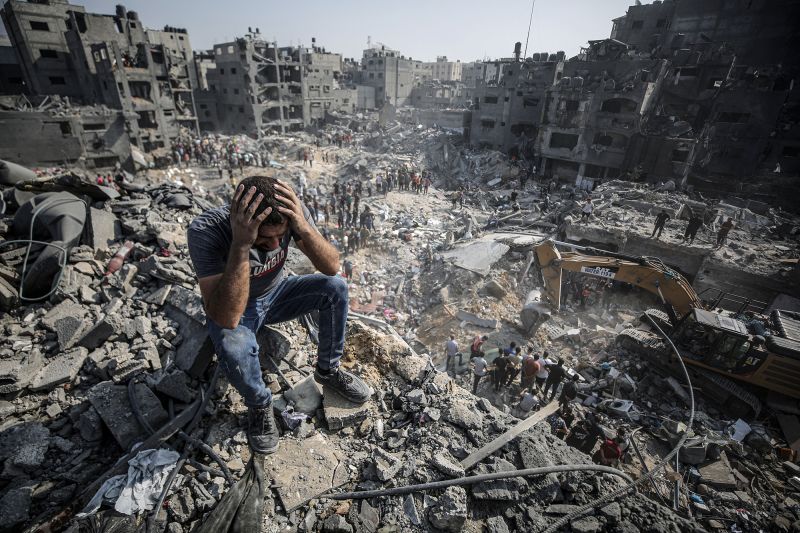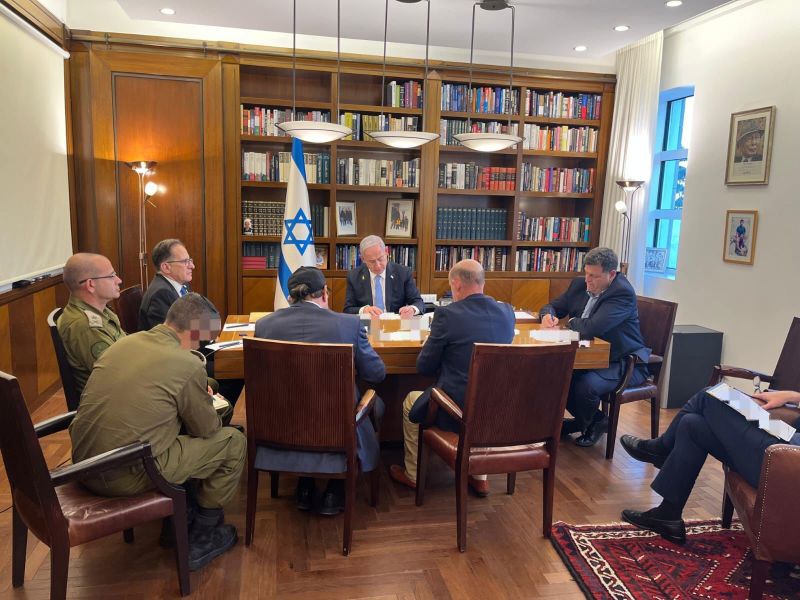Six wounded in stabbing attack in Israel
At least six people were wounded, two seriously, in a stabbing attack in the Israeli city of Hadera.
“The terrorist has been neutralized,” police said in a statement. “Four separate locations have been identified, resulting in six victims with stab wounds.” The police did not immediately provide other details, but issued a brief video of the suspected attacker being apprehended.
Of the six people rushed to the hospital, at least two were in serious condition, according to medical officials. “We treated several injured individuals in varying conditions, some of whom were in serious condition,” said emergency service provider Magen David Adom.
Stabbing attacker was ‘shot and then detained'
What we’ve heard thus far is that Israeli police are saying this was a stabbing attack on six people – two people were seriously wounded – and this happened in four different locations in the central city of Hadera in Israel.
Some other details have emerged – the assailant was on a motorcycle. There are reports that while this attack was ongoing in multiple locations, the assailant was carrying both a knife and an axe.
The Israeli police have also called this a “terrorist attack” and they have also said they have neutralised this “terrorist”. But this is a developing story and there’s a lot of concern in that area in Israel at this hour.
The reports that have emerged in the last 15 minutes are that the assailant was shot … and then detained. Helicopters have been dispatched, the area is being combed and they are trying to ensure that there was no other person who might have been involved in the attack. So we expect to hear more in the coming hours.
Dozens of Israeli soldiers troops vow to quit over Gaza captives: Report
More than 100 Israeli soldiers signed a letter saying they’ll refuse to serve in the military unless the government commits to a Gaza ceasefire and secures the release of captives held there.
According to the Israeli newspaper Haaretz, the 130 signatories of the letter – addressed to Israeli cabinet ministers and army chief of staff – included reservists and draftees from various units.
“It is now clear that continuing the war in Gaza does not only delay the hostages’ return from captivity, but also endangers their lives. Many hostages have been killed by [army] strikes, many more than those who have been rescued in military operations to save them,” the letter said.
Warning they “will not be able to continue serving” unless the government pursues a captive deal, it added: “For some of us, the red line has been crossed already. For others … the day is approaching when we will, with broken hearts, stop reporting for duty.”










































































